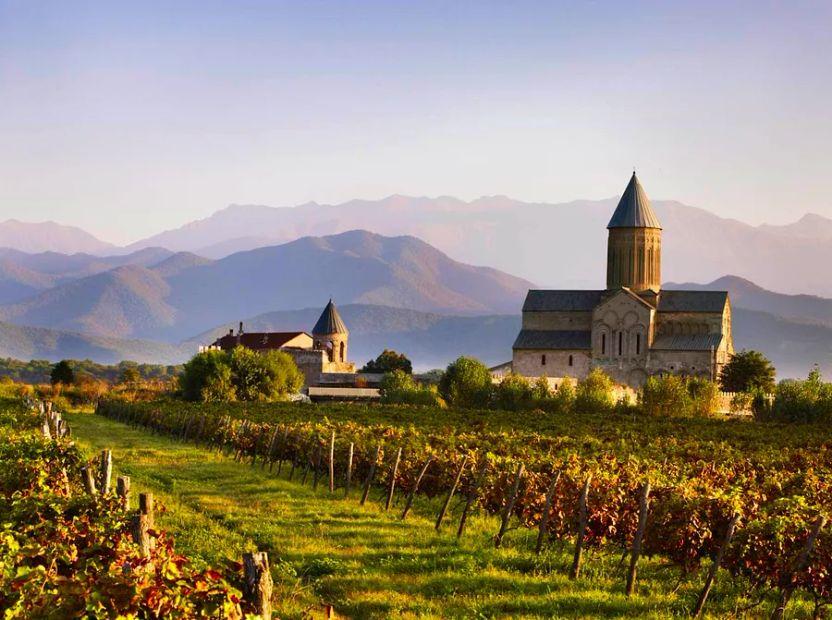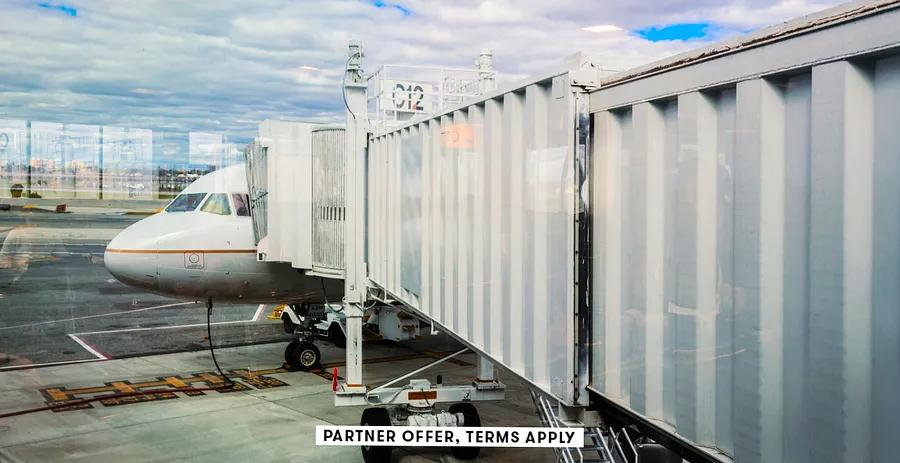A Beginner's Guide to Georgia

Nestled in the Caucasus, Georgia stands out as a gem. Over the past decade, it has been gaining acclaim for its remarkable blend of historical and contemporary attractions, stunning natural landscapes, and deep-rooted cultural heritage.
Upon arrival, you might be surprised at how a small country can feel so vast, with views of Europe’s tallest mountains always within reach and an incredible array of diverse landscapes that few larger countries could match.
With its subtropical Black Sea beaches, breathtaking river gorges, ancient monasteries carved into cliffs, and rolling vineyards framed by the snowy peaks of the Great Caucasus, Georgia offers an unforgettable experience.
What is the best time to visit Georgia?
The ideal time to visit Georgia depends on your travel plans. If your focus is on hiking in the mountains, then June, July, and August are your best choices. However, these summer months can be quite hot in the lowlands, where the major cities of Tbilisi, Kutaisi, and Batumi are located. For those seeking urban experiences while avoiding crowds and peak prices, May and September are excellent alternatives.
The lengthy, cold winter months from November to March are generally not recommended, as many tourist facilities close, and access to the High Caucasus becomes limited. Nevertheless, if you happen to be in Georgia during winter, you’ll enjoy a remarkably quiet atmosphere, with open hotels offering their lowest rates of the year.
 Make sure to dedicate ample time to explore Georgia's vibrant capital, Tbilisi © mgstudyo / Getty Images
Make sure to dedicate ample time to explore Georgia's vibrant capital, Tbilisi © mgstudyo / Getty ImagesHow long should I plan to stay in Georgia?
Considering the significant journey many travelers undertake to reach Georgia, staying for fewer than four nights could feel like a missed opportunity. Ideally, spend at least a week in the country, which will give you time to explore Tbilisi, venture around the interior, and enjoy a couple of nights in the mountains.
What’s the best way to get to Georgia?
Most visitors arrive in Georgia by plane, and it's now easier than ever to access the country. Tbilisi’s modern airport offers multiple daily flights from major European cities, along with several connections to the Middle East and Asia. Additionally, David the Builder airport in Kutaisi has emerged as a low-cost airline hub, providing good links to various (primarily eastern) European airports.
 To relax on the beaches of Batumi, you can take a train from Tbilisi © David_Bokuchava / Getty Images
To relax on the beaches of Batumi, you can take a train from Tbilisi © David_Bokuchava / Getty ImagesIs navigating around Georgia straightforward?
Once you arrive, you’ll need to choose between traveling via privately operated minibuses called marshrutky, which cover specific routes, or renting a car for self-driving, which is more expensive but grants you exceptional flexibility. Most travelers opt for the modern, relatively quick train service between Tbilisi and Batumi, the second-largest city on the Black Sea coast. Additionally, very affordable internal flights whisk travelers from the capital to the mountainous regions of Svaneti and Racha, significantly reducing travel time.
In Tbilisi, the two-line metro system provides a convenient way to navigate the city, while ride-hailing apps like Yandex, Bolt, and Maxim are budget-friendly alternatives for areas not accessible by metro.
Must-see attractions in Georgia
In summary, immerse yourself in Tbilisi’s rich array of churches and its beautifully restored Old Town, and ride the cable car to the Sololaki ridge for stunning panoramic views of the city. Techno enthusiasts often visit Georgia primarily to experience Bassiani and several other venues that have placed Tbilisi firmly on the global clubbing scene.
If you have just a day to spare, take a drive along the Russian Military Highway to the town of Stepantsminda in the High Caucasus. This journey promises to be one of the most unforgettable drives of your life. Once you arrive, don’t miss the breathtaking view of the town’s famous hilltop church set against the stunning backdrop of the snow-covered Mt Kazbek.
 For hiking enthusiasts, the Svaneti region offers an abundance of trails to explore © Maya Karkalicheva / Getty Images
For hiking enthusiasts, the Svaneti region offers an abundance of trails to explore © Maya Karkalicheva / Getty ImagesWhat I cherish most in Georgia
Georgia is brimming with captivating experiences and stunning sights, making it a challenge to choose just one. However, few visitors would argue against the fact that the highlight of the country lies in its magnificent mountains. Despite their towering heights (with Europe’s tallest peak, Mt Elbrus, just over the northern border with Russia), these mountains are surprisingly accessible.
With regular 40-minute flights now available from both Tbilisi and Kutaisi to Mestia, the principal town of the once-isolated Svaneti region, visiting the peaks of the Great Caucasus has never been easier or more affordable. For those not keen on hiking, a ski-lift and cable car to Hatsvali offer stunning panoramic views without the effort. Hikers, on the other hand, will be delighted by the vast selection of trails, with the four-day trek to the village of Ushguli being a standout favorite.
What is the cost of traveling in Georgia?
Georgia remains budget-friendly compared to Europe, although it's pricier than many Asian nations. As the tourism sector evolves and standards improve, it's natural for prices to increase.
While Georgia is still welcoming to backpackers, with cozy family-run homestays and numerous modern hostels in larger cities, the average hotel price has risen from about €40 to approximately €60 in under ten years. Short-term rentals are booming, with varying prices and qualities due to high competition. Fortunately, food and drink remain quite affordable, allowing you to enjoy a decent dinner for around €10 per person in most regions.
Transport options are very economical, except for renting a vehicle, which tends to be more expensive than in many European countries due to limited large agencies and competition. Often, flying to the mountainous Svaneti region is cheaper than the long, exhausting journey by marshrutka (minibus), but it’s advisable to book several weeks in advance during peak summer months to guarantee a seat.
Family homestays: €15–25 per person, per night
Modern hostels: €10–20
Typical hotel: €60
Dinner: €10 per person
Coffee: €1-3
Local wine bottle: €2-10
Train from Tbilisi to Batumi: €12
Flight from Tbilisi to Batumi: €53
 In Georgia, you can look forward to legendary hospitality and generous meals © Yana Tatevosian / 500px / Getty Images
In Georgia, you can look forward to legendary hospitality and generous meals © Yana Tatevosian / 500px / Getty ImagesIs Georgia welcoming to tourists?
The renowned hospitality of Georgians means you’ll receive a warm welcome wherever you go. Tourism has significantly bolstered the post-Soviet economy, and nearly everyone you encounter will likely have ties to the industry.
If you choose to stay in private homes, especially in the more secluded mountain areas, prepare to be pampered. It’s common to be treated to lavish meals paired with plenty of homemade wine, followed by several rounds of chacha, Georgia’s beloved firewater, along with heartfelt toasts from your hosts. If you’re fortunate, you might also witness traditional dancing or a spontaneous display of Georgian polyphonic singing.
Do I need a visa to enter Georgia?
Georgia allows visa-free entry for over 100 nationalities, including residents from the EU, US, UK, Australia, Canada, Israel, New Zealand, South Africa, and Switzerland. For those who need a visa, it costs US$20, takes about five days to process, and applications can be made through Georgia's e-Visa Portal.
Is Georgia a safe destination?
While it’s wise to remain alert for petty crime as you would in any location, Georgia is generally a very safe country. The main risk comes from potential car accidents, so drive carefully and be cautious when crossing busy streets.
 Older individuals are more inclined to speak Russian, while younger Georgians typically know some English © photoguns / Getty Images
Older individuals are more inclined to speak Russian, while younger Georgians typically know some English © photoguns / Getty ImagesHow widely is English spoken in Georgia?
Most older citizens are likely to speak only Russian, whereas those under 40 in urban areas usually have at least a basic understanding of English. Teenagers and professionals in the travel sector often speak English fluently. However, putting in the effort to learn a few phrases in Georgian is greatly appreciated by the locals.
What are the key dos and don’ts in Georgia?
The overwhelming majority of Georgians are Orthodox Christians, and they appreciate when visitors make an effort to dress appropriately while visiting the numerous ancient churches and cathedrals throughout the country. This generally means covering up skin that is acceptable to show in other places. Specifically, women should cover their heads, while men should remove any headwear. Fortunately, most churches provide a range of smocks, cloaks, and headscarves for visitors to borrow right outside the entrance, making it easy to comply.
Evaluation :
5/5



